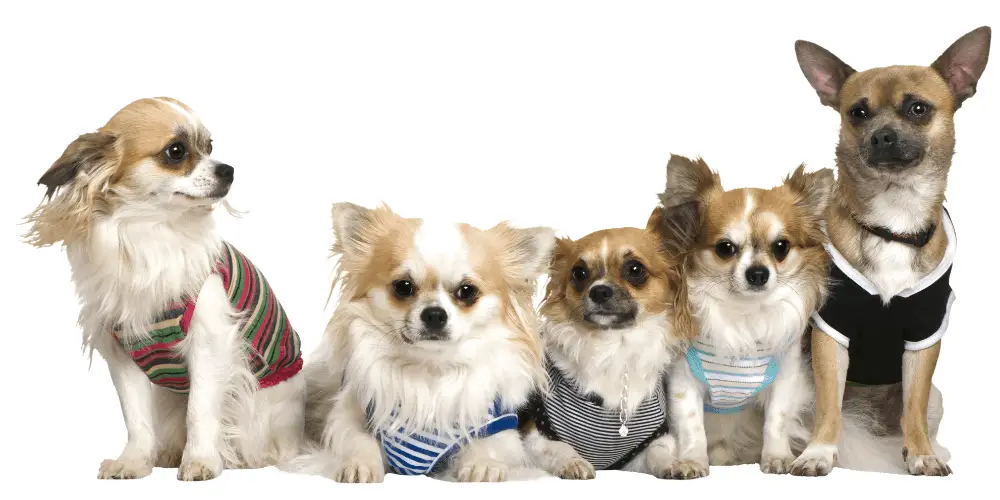The Chiwawa is a quirky little breed that has become one of the most popular small breeds out there. It isn’t just for their petite figure, but also because of the larger-than-life personality that they’ve become known for.
This article covers everything you need to know about the Mexican dog Chiwawa (Chihuahua), including the different options that are out there within the breed. By the time you’re done reading, you’ll be all the wiser about this breed, and perhaps more equipped to decide whether or not a Chiwawa is right for you.
How Do You Spell Chihuahua?
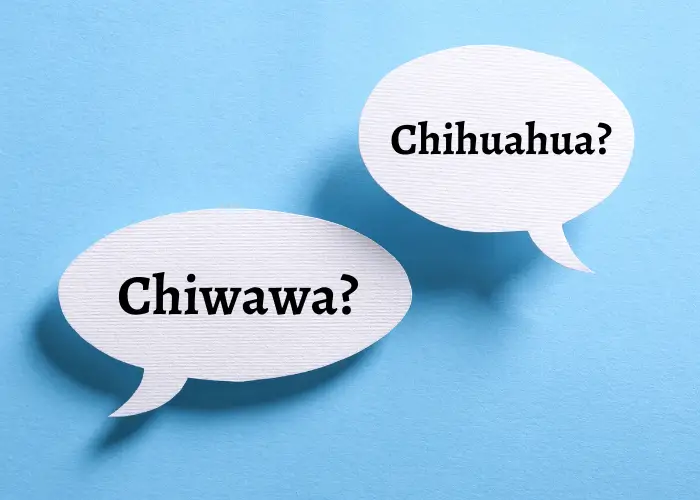
There’s a hard way and an easy way to spell the breed’s name these days. The hard way is traditionally correct; however, the easy way has gained traction all over the world to the point where most popular spellcheckers don’t distinguish between the two.
The Chiwawa hails from the Mexican State of Chihuahua, hence the name. What some may not realize, is that Spanish words that have “H’s” in them are not pronounced with the letter, and falls silent.
So, looking at the word Chihuahua tends to make people pronounce it to sound like Chi-hooah-hooah, rather than how it’s meant to sound as “Chiwawa.” Largely due to the internet’s influence, “Chiwawa” has evolved to be used increasingly more often, and is easier on the eyes due to being phonetically more on target to how the name is spoken.
23 Other Chihuahua Pronunciations:
- chuwawa
- chewawa
- chiwowa
- chwawa
- chuiwawa
- chiawawa
- chiwaw
- chowawa
- ciwawa
- chiwawah
- chi wawa
- chuawawa
- chawowa
- chiwwa
- chiwawaw
- chiwauwau
- chawaw
- chiwhawha
- chowowa
- chewowa
- chiwawaa
- chiwiwa
- chiwauwa
Chiwawa Physical Description
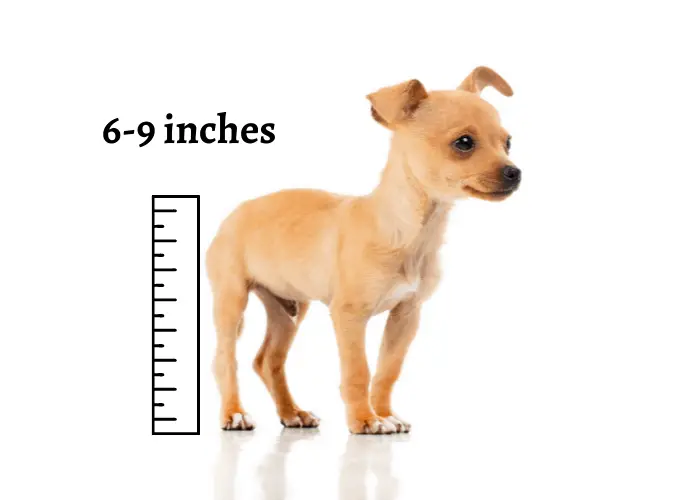
When someone says Chiwawa, instantly others think “small dog,” and be right for doing so. However, this isn’t just another small dog. Most kennel clubs concede that the Chiwawa is the smallest dog breed on the planet.
Generally speaking, the Chiwawa rarely grows to exceed 8” in height and weighs up to 6 pounds. They are petite pups and are often seen populating purses everywhere.
Everybody knows they’re small, but did you know that there are at least 5 different types of Chiwawas?
Some would even say there are even more! Let’s take a look at them.
Seven types of Chiwawas
Long Coat Chiwawas

The long coat Chihuahua is called so due to their fur being an inch or two longer than the smooth coat variety. Most of these types have double coats, but interestingly, not all of them do.
Smooth Coat Chiwawas
The Smooth Coat Chihuahua has a smooth, glossy coat that is tight to the body but has a slightly thicker and longer ruff.
Deer Head Chiwawas
Usually slightly larger than other types of Chiwawas, the Deer Head type denotes the shape of the face, resembling that of a deer more so than the others do.
Apple Head Chiwawas
Just like the Deer Head is called so for resembling a deer, the Apple Head tends to resemble the shape of an apple. They are large-eyed and stub-nosed, with a broad, almost rounded-shaped head.
Teacup Chiwawas

The Teacup Chihuahua is the smallest of the small, being no more than 6” tall, and weighing no more than 3 pounds. This type can be either long or smooth-haired.
Buyers beware, often Teacups wind up with health concerns due to the breeding process necessary to get them this small. Or, they might wind up outgrowing their teacup status after reaching adulthood depending on the breeder’s integrity or the pup’s parents’ genetics.
For the Record- AKC only recognizes two types- Long Coat and the Smooth Coat varieties of the Chiwawa. All others are considered to fall within those two categories according to them.
Coat Colors and Markings
Chiwawas have 9 standard colors or configurations, and six standard marking types.
The standard colors are:
- Red
- Black
- Black and Tan
- Chocolate
- Chocolate and Tan
- Cream
- Blue and Tan
- Fawn
- Fawn and White
The Standard Marking Configurations are:
- Spotted on White
- Black Mask
- Black Brindle
- Merle Markings
- Black Sable
- White Markings
Bear in mind- these are just the standards according to the AKC, not an exhaustive list of the many different color configurations that exist within the confines of the breed.
The Temperament of a Typical Chiwawa
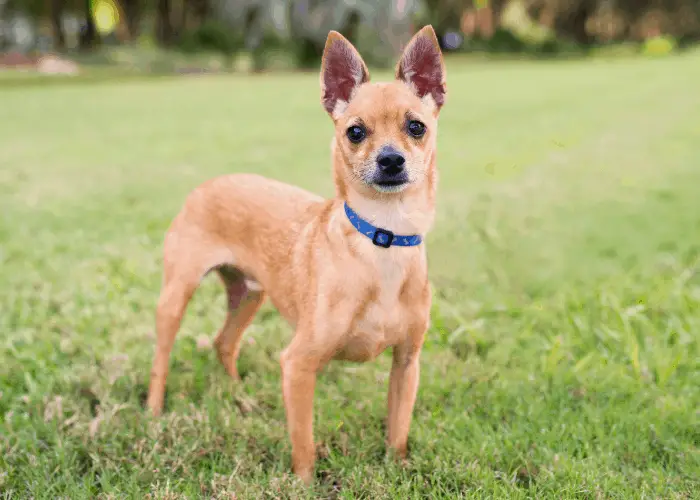
When raised, socialized, and trained properly, the Chiwawa is a family-friendly, energetic, fun-loving dog. When certain things are ignored early on such as training and socializing, bad habits can emerge.
Chiwawas have a reputation for being two dogs in one. A loving and affectionate single-person dog on one hand, but an angry pocket-sized leviathan toward everyone else on the other hand.
This is as true as its upbringing allows it to be, as is the case with a lot of breeds out there. Something that is a problem as well as a blessing, is its unthreatening size.
Because they’re small, it isn’t a terrifying display as it would be with a Rottweiler or Chow Chow expressing the same behavior. Their size makes acts of aggression almost cute- till they start nipping. Then it’s not so much fun anymore, and people will tend to start not wanting to come over to visit after that barrier is crossed.
Sound training (despite cuteness), frequent socialization with others, and a healthy environment will help to bring forward all of the positives that are bundled with the Chihuahuas personality.
How Long do Chiwawas Live?

The smaller the dog, the more tendency they have toward enjoying longer lives. This has been proven true for several reasons, the most popular is that they simply don’t physically age as fast throughout their adulthood.
Chiwawas live anywhere between 15-20 years. How they are bred and what they’re bred for (what the target type is) will either add to or take away from the longevity of the particular dog.
Training a Chiwawa?
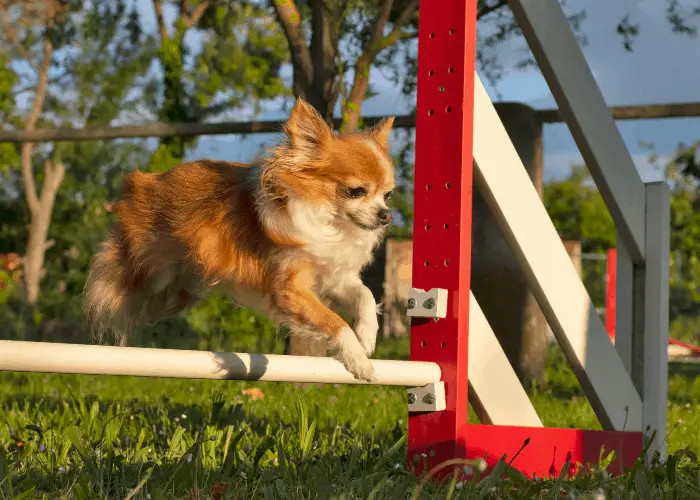
Yes! You can train a Chihuahua! Small dogs need every bit as much training as any other dog. One could argue even more so due to our default willingness to pamper and spoil the dog.
Little dogs become little problems when their bad habits are not trained out of their systems or replaced with good habits. Though they’re small and often frail, they’ll have no issue trying to run the place themselves if you let them, and not in the way you’d rather them run it!
Rather than an even-tempered, friendly, well-behaved pet, you’d wind up with a maniacal dictator who throws a fit when things don’t go their way. That being said, training needs to happen as soon as possible.
Taking Care of a Chiwawa
When it comes to taking care of a Chihuahua, grooming practices will rely on whether you’ve got the smooth or long-haired variety.
Grooming
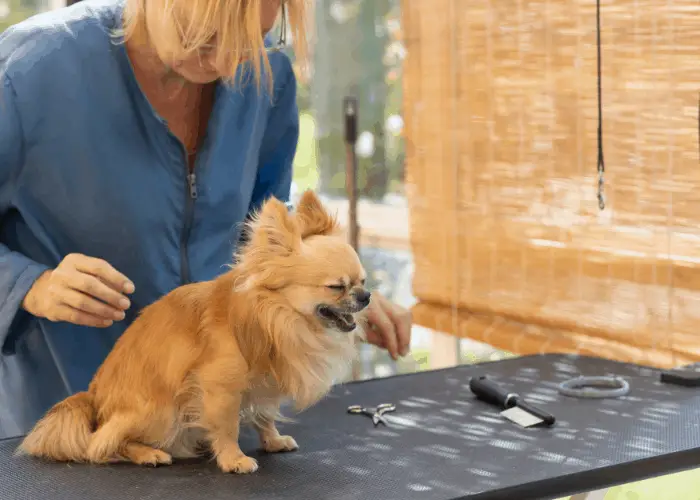
The smooth coat Chiwawa needs only to be occasionally brushed, once a week or so for shedding upkeep. The long-haired Chiwawa will need to be brushed more frequently, to avoid any snarls or mats from developing.
For either variety, occasional baths should be taken often enough to make sense depending on how dirty they may become through play, walks, or outside time. However, make sure to remember to dry the dog thoroughly, to avoid the dog from getting chilled and a case of shivers.
Nutrition

The last thing you’d want is for your dog to overeating, and become overweight. This is especially true as the dog grows older.
Chiwawas are prone to packing on the pounds if allowed to, and their frail frame will have difficulty handling the added weight. Your Chiwawa will be best served when fed age-appropriate food in measured portions.
Chiwawa Health Issues
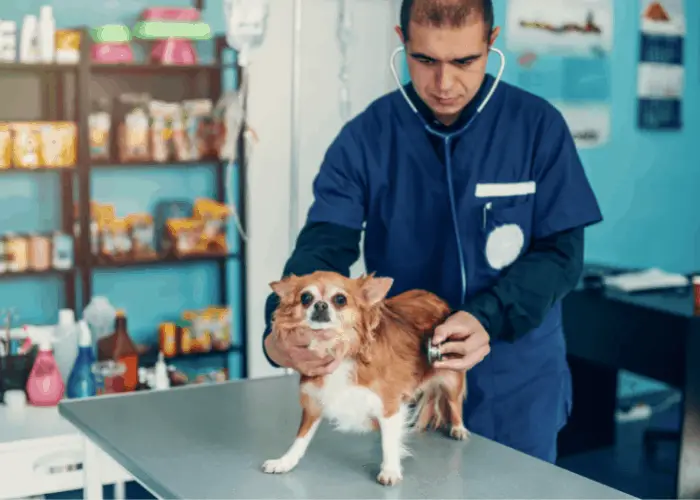
Overall, the Chiwawa is a healthy breed, that when bred responsibly and carefully suffers few genetic difficulties. However, some concerns come with the breed regardless as is true with any breed.
The threats that are most common with this breed are heart attacks, idiopathic epilepsy, loosened kneecaps otherwise known as patellar luxation, and eye disease.
Chiwawa Top 10 Facts Video
Final Thoughts
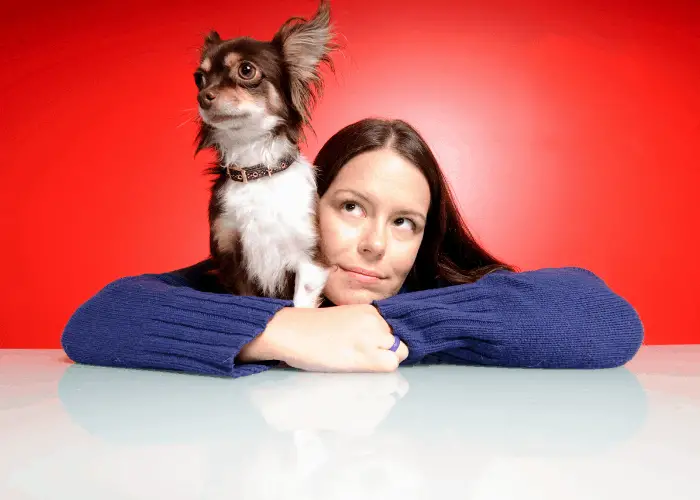
If you’re looking for a relatively low-maintenance, fun-loving, affectionate dog to be your companion, the Chiwawa is a great choice. They have warmed the hearts of many an owner and are a long-lasting member of the family.
However, the personality quirks that come with the breed may be something you want to take into consideration. If you’re the type who likes to entertain often, you may find yourself closing your dog in your bedroom during the event, to prevent the dog from harassing the guests.
Related Questions:
Why Do Chihuahuas Seem So Angry?
Chihuahuas are naturally insecure creatures, and can you blame them? They are living in a world of giants and dangers around every corner- even at home!
Their anger is often fear in disguise, and when they behave this way, they feel that their lives could be on the line. Whatever or whoever they aren’t familiar with is a potential threat in their eyes.
Do Chihuahuas Like to Cuddle?
Yes, they do. Some even insist on it!
They don’t just like to cuddle but will demand a spot in your bed, on your lap, or even space reserved in your pocketbook. They are extremely affectionate creatures that will give owners just as much attention as they receive.
They do like to cuddle as a means to show and receive affection, but they’ll also do it to help keep themselves warm.
Can a Chihuahua Kill You?
Yes, an odd question, but one that gets asked therefore should be answered.
The easy answer is yes, a Chihuahua can kill you, but only under the right circumstances. Dog bites can easily get infected, and if not taken care of properly, can fester into an infected wound that pumps infection into your bloodstream, winding up in eventual death.
But regarding biting someone in a manner that results in immediate death, no. That is unless the victim tries their darndest to allow the dog to do it, and the dog is mad enough at the time. Otherwise, it will produce a bite that will need to be treated, and that’s it.
Do Chiwawas Like to Swim?
Generally, yes, they will take a dip if they are comfortable enough to do so. However, they spook easily (even more easily when in the water) and will tucker out faster while swimming than doing other forms of exercise.
Not all Chihuahuas enjoy taking the plunge though, as they are too nervous about the water’s constant movement, reflections, or other things that it may be threatened by.
Are Chihuahuas Good Pets?
Chihuahuas are good pets, in that they are loyal and loving to their owners, they thrive on attention, and most like to play. But if a small child is involved, great care is going to have to be applied for both the dog and the child.
This is a frail boned breed, that can be easily hurt by playful or rough children. The dog can lash out toward a small child if it feels threatened as well.
Company can also pose to be an issue, as they often behave aggressively toward strangers.
Do Chihuahuas Normally Get Along with Cats?
Generally speaking, yes, Chihuahuas often get along fine with cats. More often than not the one who takes issue is the cat.
Chihuahuas are a high-energy breed that is quick and nimble. Cats might be disturbed or made to be uneasy around the dog until it gets used to the Chihuahuas actions.
All this means is, the cat is the one who you’ll have to worry about having an attitude against the dog, rather than the other way around. As stated above, this is generally speaking.
Do Chihuahuas Bark a Lot?
Yes, Chiwawas do tend to bark quite a bit when they get excited. When there’s a Chiwawa in the house, there is never a mystery as to whether or not someone is at the door, in the yard, or the home.
They are protective over their homes and will bark tirelessly if it perceives someone or something to be a threat. After all, it’s the most they can do due to their size.
As far as this goes, they are great guard or alert dogs. On the other hand, it can become trouble for thin-walled apartment buildings.

